v2
“Nabd” translates to “Heartbeat” in Arabic. Nabd is Remal’s version of the Arduino Uno, a classic and widely used development board. It is based on the ATMega328p, just like the Arduino Uno. In fact, it shares the same layout as the Uno, making it compatible with all shields that support the Uno. It’s an easy board for everyone to get started with due to the simplicity of the Arduino IDE and the wealth of libraries and tutorials available online.
However, we decided to improve and refine the board. Making it better, cheaper, and more modern (goodbye USB-B and DC barrel!)
Nabd v2 was designed in a time before the name “Remal IoT” and the current logo were decided upon. A look into our earlier past!
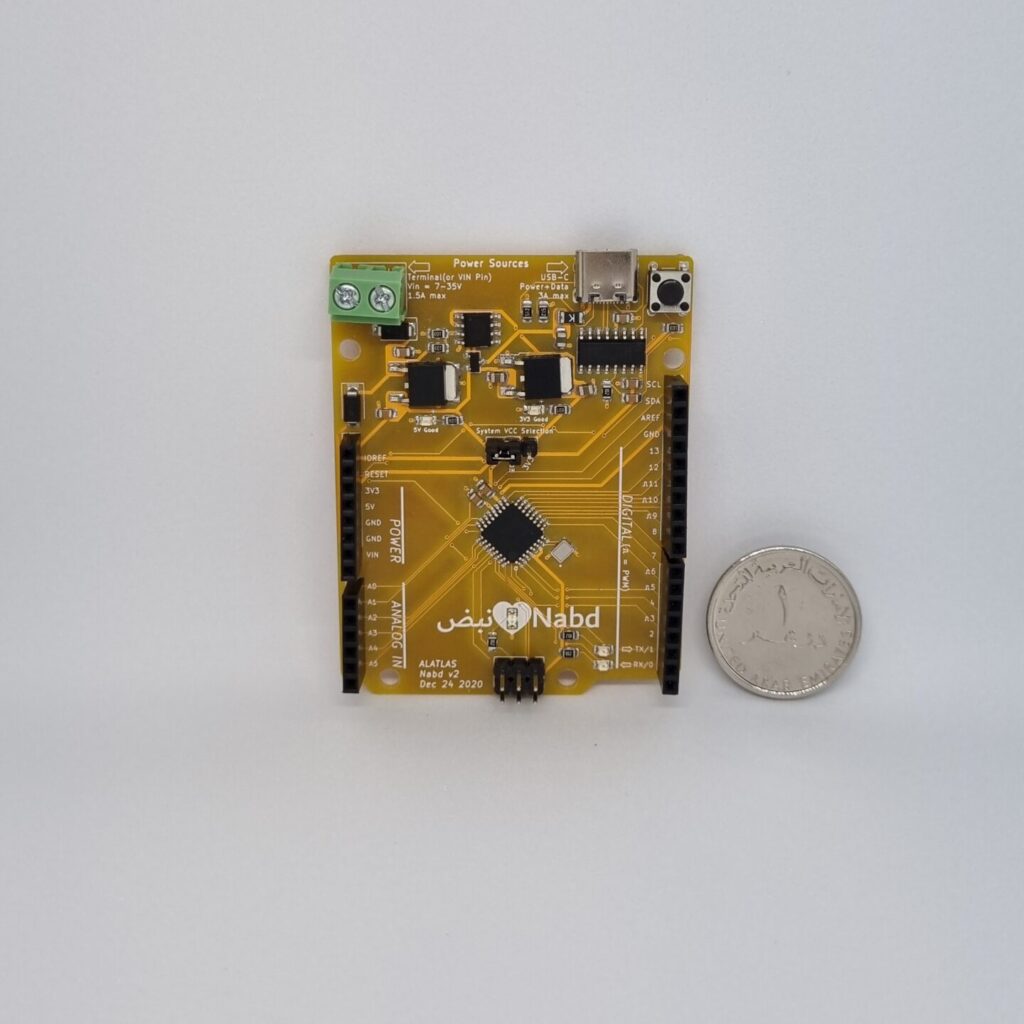
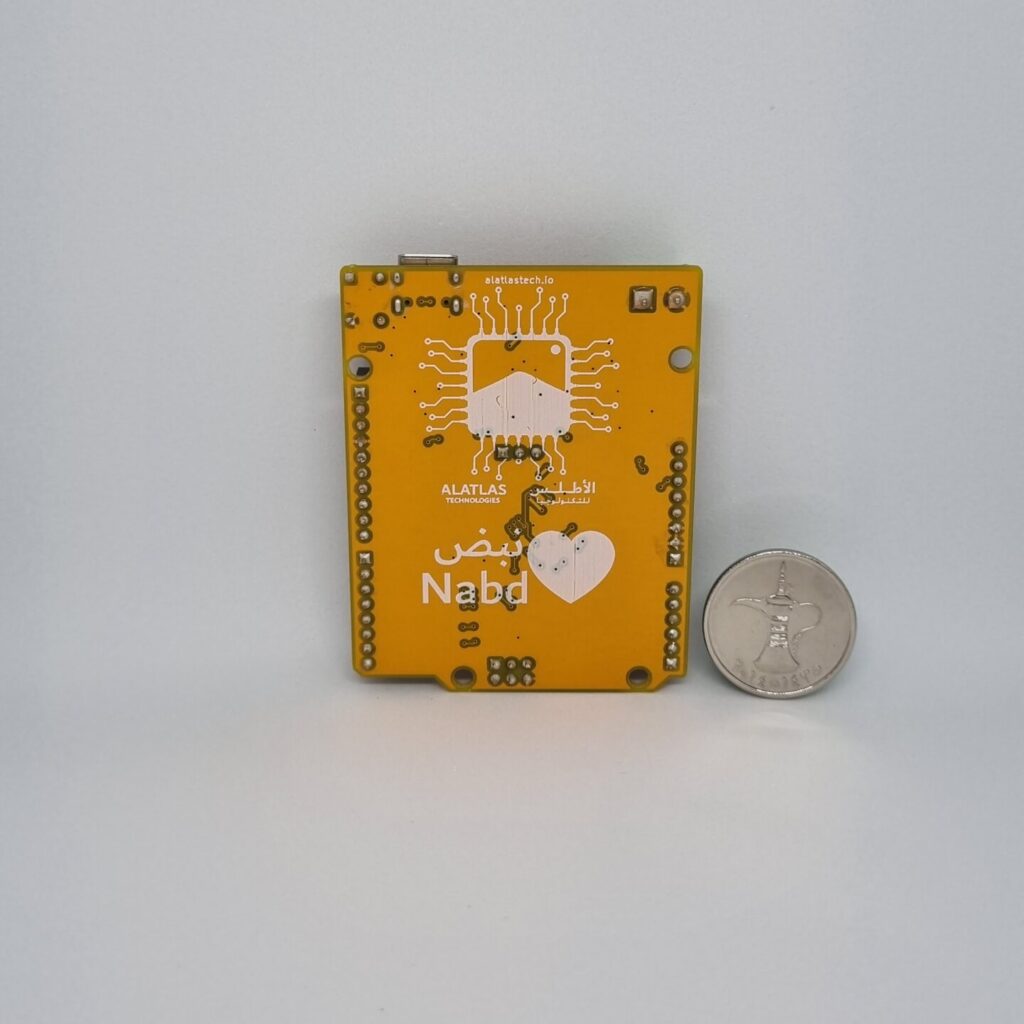
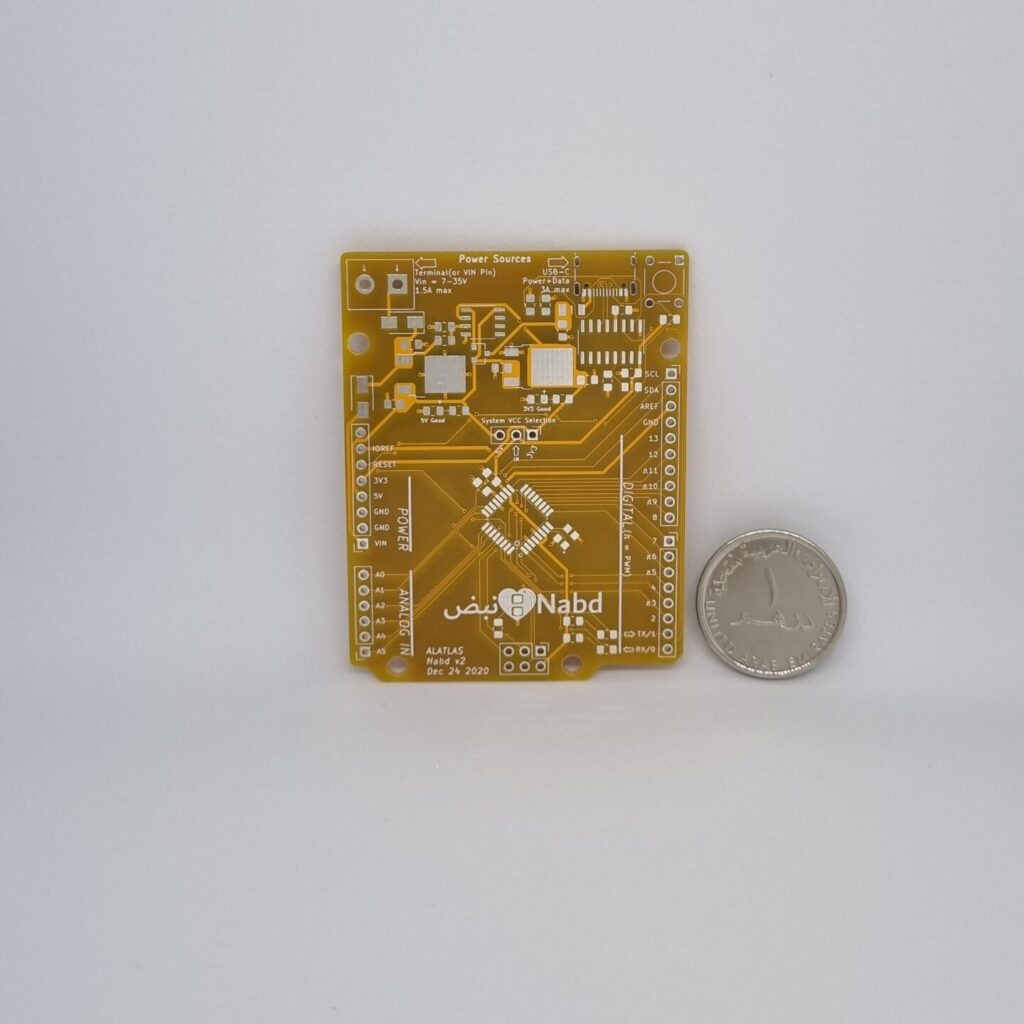
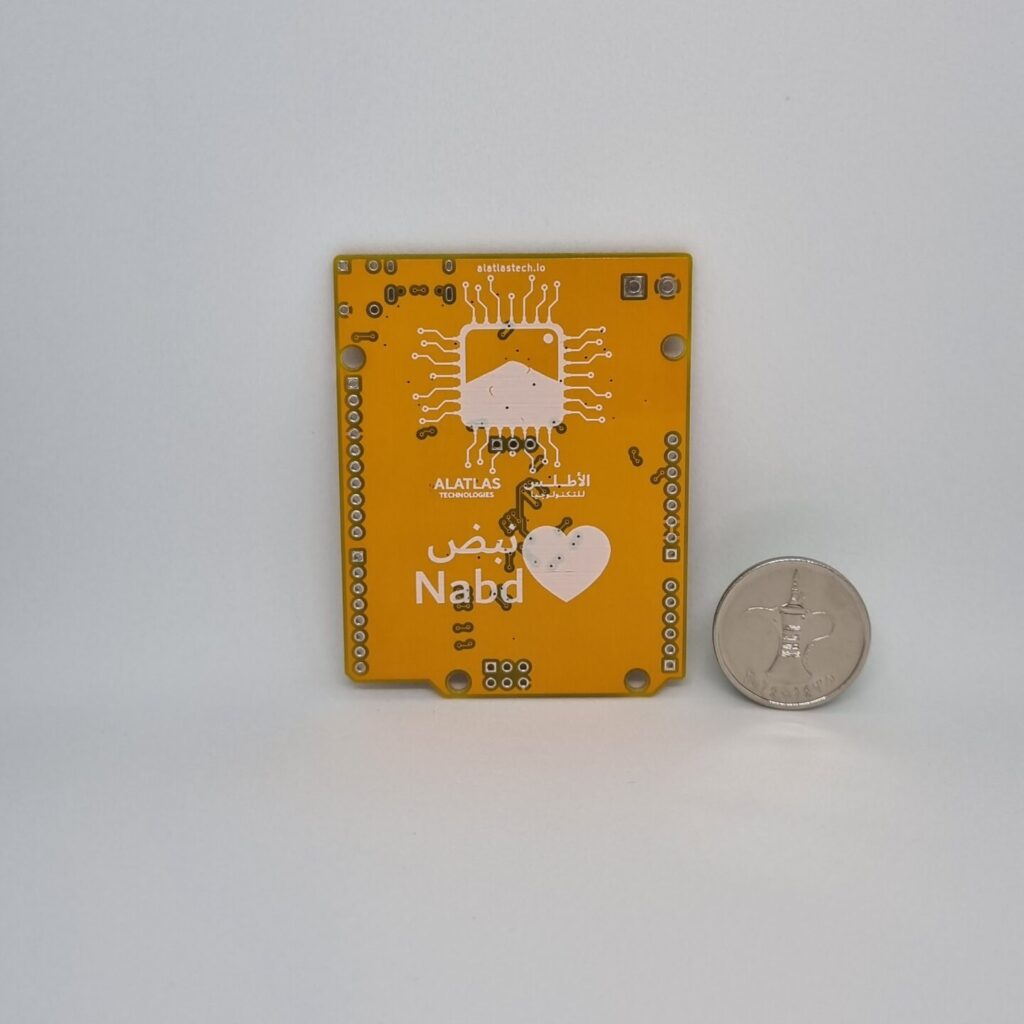
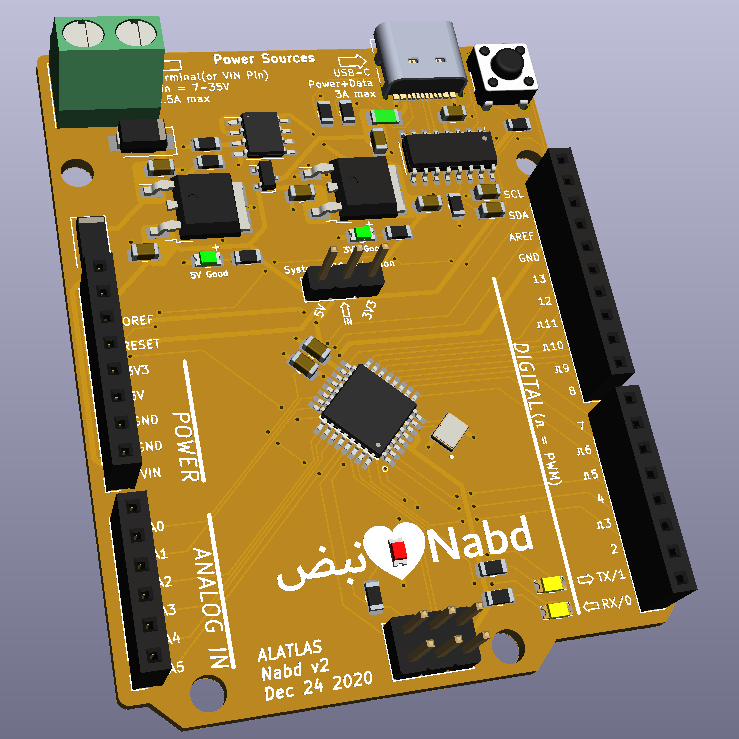
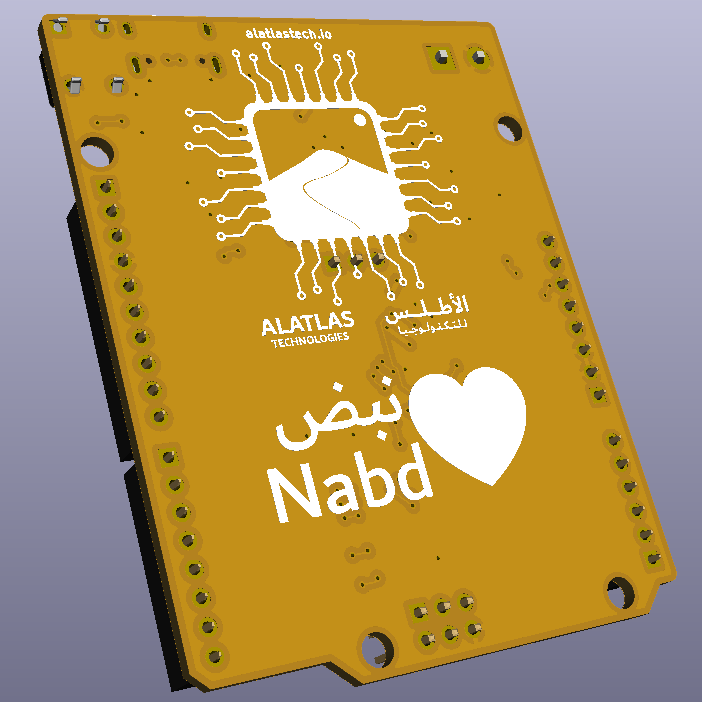
Nabd represents the foundation for any student, hobbyist, or engineer looking to get into the world of embedded systems. It all starts with Nabd, the heartbeat that pumps the user with knowledge and hopefully passion into working with embedded systems and IoT devices!
Check out the video for a quick introduction to Nabd v2 and all its features!
▶ Powered by ATMega328p (3.3V or 5V / 8-bit / 20 MHz)
▶ Uses a USB-C connector instead of the archaic USB-B connector found on the Arduino Uno
▶ Selectable GPIO logic level – 5V or 3.3V (extremely useful for quickly adjusting Nabd to work with various sensors)
▶ Designed to handle up to 3A (that’s a lot of power!)
▶ Screw terminals allow for more varied power hookups than the DC jack
▶ More powerful voltage regulators
▶ Protection against reversed polarities and input from multiple power sources (For some reason, the Arduino Uno doesn’t have a protection diode on the Vin pin. Well, Nabd has that! You don’t have to worry about damaging the board if battery polarities were reversed or if both the terminal and Vin pin had power coming through – you are safe 😊…hopefully)
Well… Nabd v0.1 exists 😳… but alas, it failed.
That is completely fine in this space; it’s all about learning from your mistakes!
When you first spin up a PCB, you should expect the first few revisions to have unaccounted for hardware bugs.
Curious to know what we learned from Nabd v0.1? This blog post covers it!